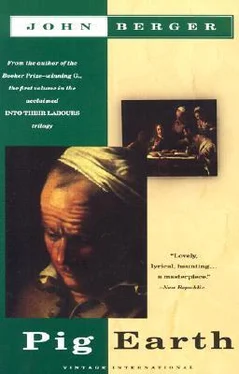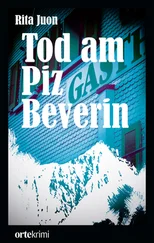Early, but the Parisians can’t get out of bed. So they’re always in a hurry. You should see them running along the tunnels to catch the trains.
The trains don’t stop? asked the Cocadrille.
The path down to the village followed a stream and near the bottom was a lilac tree. When the lilac was in flower, you could smell the tree thirty metres away.
Tell me more about Paris.
People sleep in the streets, said Emile.
Why?
If they asked for shelter, the Parisians would never let them come in.
Why don’t they build sheds?
There is no wood to build with.
No trees?
It’s forbidden.
Do you know what Grandfather Revuz did? Lucie asked. The Mayor told him he couldn’t cut down an acacia. And he cut it down. After he cut it down, he said the leaves on that bush were too small for him to wipe his arse on! And if they were that small, he said, it couldn’t have been an acacia.
Grandfather Revuz may think he’s clever but he’d be lost in Paris, said Emile. Do you know how many horses there are there?
Fifty thousand! guessed Henri.
Two million, said Emile with pride.
Will you take me with you next time? Lucie asked.
They would lock you up! said Henri.
When they went into the dairy, the cheesemaker straightened his back, extended a hand and shouted:
So ’Mile is back from Paris!
For the summer.
How old are you now?
Sixteen, Emile replied.
Never too young!
The cheesemaker, whose wife cuckolded him regularly, winked.
Henri and Lucie unstrapped their cans. In the middle of the dairy a cauldron hung from its wooden gallows. The dairy was well-placed because it was cool even in summer. The cheesemaker’s wife complained that her husband’s feet were perpetually like ice.
Did you climb to the top? Lucie asked Emile.
What top?
The top of the Eiffel Tower!
You go up by a lift, Emile said.
Lift?
Yes, lift.
What’s a lift? she asked.
The Cocadrille knows nothing, roared Henri, laughing. The proper place for her is her dung heap.
None of them was looking at her. She removed the lid of her milk can. She picked it up and, as you throw water out of a bucket, she hurled litres of milk into Henri’s face. Whilst the milk was dripping from his hair, she screamed:
If you weren’t a weasel I’d kill you!
The cheesemaker, swearing, tried to hit her, but she escaped, ran round the cauldron and vanished out of the door.
The story soon reached the ears of Marius à Brine. He found his daughter by the washing trough and he started to beat her, shouting:
Milk is not water! Milk is not water!
After a few blows he stopped. She was staring at him with her bright blue eyes. She had eyes the colour of forget-me-nots. Her look forced him to gather her into his arms and to press her face against his stomach.
Ah! My Cocadrille. You came out like that, didn’t you? You can’t help it. You just came out like that.
She stepped with her small feet onto his boots and then he carried her on his feet across the yard, repeating and laughing: The Cocadrille! The Cocadrille!
And so the name Cocadrille, born of both hatred and love, replaced the name Lucie. When she was thirteen, a circus came to the village and put up its tent in the square. The circus consisted of one family, a goat which could stand on the smallest milking-stool we ever saw, and two ponies. The father was ringmaster, the mother was acrobat and their son was the clown. During the afternoon the son went round the cafés of the village and blew a trumpet to announce the evening performance. The men smiled at the trumpet but they did not invite him to drink, lest he make fun of them.
The circus also had an elephant. The elephant was a piece of grey cloth with a trunk sewn onto it. When the ringmaster turned to the benches where the kids were sitting and asked for volunteers, I rushed forward. I was the front of the elephant, and Joset, who was killed in an avalanche, was the back. Together we danced to an accordion which the clown was playing.
And now for a cow elephant! shouted the ringmaster, holding up a second piece of grey cloth. Two pretty girls please! The second piece of cloth had a pearl necklace painted on it, and from the huge folds of its ears hung a pair of earrings painted gold. The rings had been taken from a horse’s bit.
The girls were all too shy. Not one put up her hand. I lifted up the cloth of the elephant’s head and, facing the girls, cried out:
The Cocadrille! The Cocadrille! The Cocadrille!
And she came! Everyone in the tent clapped and laughed at the tiny figure who was going to be part of an elephant.
I heard the ringmaster whisper to his son:
She’s a dwarf. Find out her age.
For a moment the Cocadrille stood there alone, eyes alight. Finally another girl climbed over the benches and joined her. Beside the Cocadrille, the other girl looked like a giant. The clown began to play music — a violin this time. The only way the Cocadrille could manage was to be the back of the elephant, and instead of bending forward at the waist, she stayed upright and pulled hard at the grey cloth so that it didn’t sag in the middle of the animal’s back. There we were, two elephants, a bull and a cow, with the violin playing.
There were pictures of elephants in our schoolbooks, because, from Hannibal to Napoleon, foreign generals had the idea of using elephants to cross the mountains. The four of us danced in the middle of the arena, and every time we stopped, the ringmaster cracked his whip over us, and the crowd shouted: Again! Again! Sometimes I caught sight of the Cocadrille’s bare feet — she had kicked off her sabots — dancing jerkily at the back of the grey cow elephant.
Eventually they let us go. The clown son whispered something to the Cocadrille and then shook his head at his father, who shrugged his shoulders.
When I saw her next at school I asked her what she had thought of the circus. She didn’t mention the dance of the elephants. What she liked, she said, was the clown on stilts. Could I make her a pair? I said I would.
I never made them. More than fifty years later she said to me — her eyes were stone-coloured by then — If I had a pair of stilts, I could cross the valley in ten strides. This was at the time when she was walking a hundred kilometres a week. Ten strides! she repeated.
The Cabrol farm at Brine is on the advet , the slope facing south. Opposite on the ubac , facing north, is a hamlet called Lapraz. There is a song about the cocks in each hamlet. The one at Lapraz, where there is less sun, calls out:
I sing when I can.
The cock at Brine crows:
I sing when I want!
To this the ubac cock replies:
Then be content!
It was on the slope facing Lapraz in August 1914 that the Cabrol family were scything their patch of oats when they heard the church bell ringing in the valley below.
The war has started, said Marius.
The massacre of the world has begun, said La Mélanie.
Women usually know better than men the extent of catastrophe. The Mayor delivered the mobilisation papers. Most of those called up were in high spirits. Never again, not once, were the cafés in the village to be so full as on the evening before the mobilised men left. Marius, older than most of the others — he was thirty-eight — was apprehensive. He avoided the cafés and spent the evening at home, giving instructions to Emile about what had to be done before the snow came, by which time he would be back, and the war would be over.
The band played as the men marched out of the village along the road which followed the river to the plain. The band was smaller than usual, for half its players were among the soldiers who were leaving. I had joined the band the previous autumn and I was the youngest drummer.
Читать дальше












